List of Presidents of Venezuela
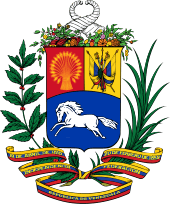 |
| This article is part of a series on the politics and government of Venezuela |
|
Executive |
|
Legislature |
|
Judiciary |
| Foreign relations |
Under the Venezuelan Constitution, the President of Venezuela is the head of state and head of government of Venezuela. As chief of the executive branch and face of the government as a whole, the presidency is the highest political office in the country by influence and recognition. The president is also the commander-in-chief of the Venezuelan Armed Forces. The president is directly elected through a popular vote to a six-year term. Since the 2009 constitutional referendum, any person can be elected to the office an indefinite number of times. Upon the death, resignation, or removal from office of an incumbent president, the vice president assumes the office. The president must be at least 30 years of age, and has to be a "natural born" citizen of Venezuela, and cannot possess any other citizenship.
This list includes only those persons who were sworn into office as president following the establishment of the independent State of Venezuela, which took place on 13 January 1830. There have been 46 people sworn into office, and 64 presidencies, as several politicians (most prominently between 1830 and 1953) have held the office more than once. José Antonio Páez, the first president, was inaugurated in 1830. Antonio Guzmán Blanco served during the most number of terms, with three. Juan Vicente Gómez has served during the longest (although interrupted by interim presidencies), with over 27 years. Hugo Chávez served the longest uninterrupted period in office with 11 consecutive years, starting after his restoration to power in April 2002 and until his death in March 2013. The current president, Nicolás Maduro, was elected to his first term in 2013.
History
Before 1830
The presidential designation encompasses only those persons who were sworn into office as President of Venezuela following Venezuela's declaration of independence from Spanish colonial rule, which took effect on July 5, 1811. The first president, taking office on July 5, 1811, was actually the president of a triumvirate of the first established Republic of Venezuela that rotated the presidency weekly. The person serving as president during the week of July 5 was one of the three signatories of the Declaration of Independence: Cristóbal Mendoza. Mendoza shared the triumvirate with Juan Escalona and Baltasar Padrón. A second triumvirate followed on April 3, 1812 whose members were Francisco Espejo, Fernando Toro and Francisco Javier Ustariz.[1][2]
Owing to the profound confusion of the Venezuelan War of Independence and the period of Gran Colombia over what is now Venezuela, this page has gaps between 1813 and 1819. For this period in time, historians refer to the Republic of Venezuela as the Second Republic of Venezuela (1813–1814) and the Third Republic of Venezuela (1817–1819) as Simon Bolivar twice reestablished the republic. The Congress of Angostura appointed Simón Bolívar "Jefe Supremo de la República de Venezuela" (Supreme Commander of the Republic of Venezuela) from 1819 until 1830.
After 1830
In 1830, José Antonio Páez declared Venezuela independent from Gran Colombia and became president, taking office on January 13, 1830. Although he was not the first president of Venezuela (having in mind Cristóbal Mendoza in 1811), he was the first head of state of independent Venezuela, after the dissolution of Gran Colombia.
Presidents of Venezuela since independence (1830–present)
The list below includes interim "caretaker" as well as regular serving presidents, and democratically installed presidents as well as those installed by other means (e.g.; Marcos Pérez Jiménez).
State of Venezuela (1830–1864)
| | ||||||||
|---|---|---|---|---|---|---|---|---|
|
Conservative Party Liberal Party Independent Military government | ||||||||
| № [3] |
Portrait | President (Birth–Death) |
State | Term of office | Term [4] |
Party | ||
| 1 | José Antonio Páez (1790–1873) |
Portuguesa | 13 January 1830 – 20 January 1835 |
1 (1831–35) |
Conservative Party | |||
| 2 | 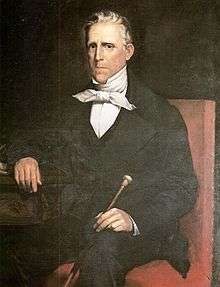 |
Andrés Narvarte (1781–1853) |
Vargas | 20 January 1835 – 9 February 1835 |
Conservative Party | |||
| 3 |  |
José María Vargas (1786–1854) |
Vargas | 9 February 1835 – 9 July 1835 |
2 (1835–39) |
Conservative Party | ||
| 4 | 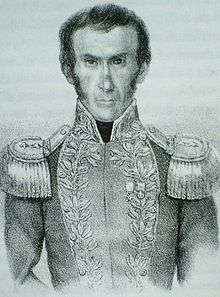 |
José María Carreño (1792–1849) |
Miranda | 27 July 1835 – 20 August 1835 |
Conservative Party | |||
| 5 |  |
José María Vargas (1786–1854) |
Vargas | 20 August 1835 – 24 April 1836 |
Conservative Party | |||
| 6 |  |
Andrés Narvarte (1781–1853) |
Vargas | 24 April 1836 – 20 January 1837 |
Conservative Party | |||
| 7 |  |
José María Carreño (1792–1849) |
Miranda | 27 January 1837 – 11 March 1837 |
Conservative Party | |||
| 8 | 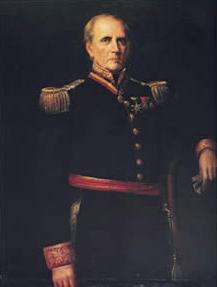 |
Carlos Soublette (1789–1870) |
Vargas | 11 March 1837 – 1 February 1839 |
||||
| 9 | José Antonio Páez (1790–1873) |
Portuguesa | 1 February 1839 – 28 January 1843 |
3 (1839–43) |
Conservative Party | |||
| 10 |  |
Carlos Soublette (1789–1870) |
Vargas | 28 January 1843 – 20 January 1847 |
4 (1843–47) |
Conservative Party | ||
| 11 | 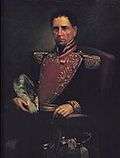 |
José Tadeo Monagas (1784–1868) |
Monagas | 20 January 1847 – 5 February 1851 |
5 (1847–51) |
Conservative Party | ||
| 12 | 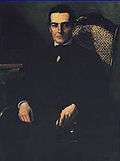 |
José Gregorio Monagas (1795–1858) |
Monagas | 5 February 1851 – 20 January 1855 |
6 (1851–55) |
Liberal Party | ||
| 13 |  |
José Tadeo Monagas (1784–1868) |
Monagas | 20 January 1855 – 15 March 1858 |
7 (1855–60) |
Liberal Party | ||
| 14 | 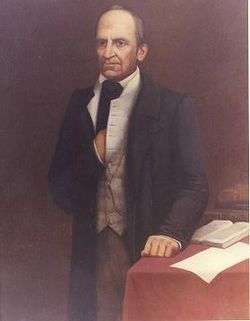 |
Pedro Gual Escandón (1783–1862) |
Caracas | 15 March 1858 – 18 March 1858 |
Liberal Party | |||
| 15 |  |
Julián Castro (1810–1875) |
Miranda | 18 March 1858 – 2 August 1859 |
Military | |||
| 16 |  |
Pedro Gual Escandón (1783–1862) |
Caracas | 2 August 1859 – 29 September 1859 |
Independent | |||
| 17 | 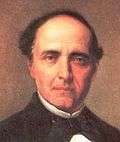 |
Manuel Felipe de Tovar (1803–1866) |
29 September 1859 – 20 May 1861 |
Liberal Party | ||||
| 8 (1860–64) | ||||||||
| 18 |  |
Pedro Gual Escandón (1783–1862) |
Caracas | 20 May 1861 – 29 August 1861 |
Liberal Party | |||
| 19 | José Antonio Páez (1790–1873) |
Portuguesa | 29 August 1861 – 15 June 1863 |
Military | ||||
| 20 | 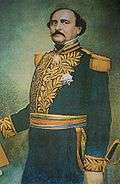 |
Juan Crisóstomo Falcón (1820–1870) |
Falcón | 15 June 1863 – 25 April 1868 |
Military | |||
| 9 (1864–73) | ||||||||
United States of Venezuela (1864–1953)
| | ||||||||
|---|---|---|---|---|---|---|---|---|
|
Democratic Action Conservative Party Liberal Party Independent Military government | ||||||||
| № [3] |
Portrait | President (Birth–Death) |
State | Term of office | Term [4] |
Party | ||
| 20 |  |
Juan Crisóstomo Falcón (1820–1870) |
Falcón | 15 June 1863 – 25 April 1868 |
9 (1864–73) |
Military | ||
| 21 |  |
Manuel Ezequiel Bruzual (1832–1868) |
Magdalena (Gran Colombia) |
25 April 1868 – 28 June 1868 |
Independent | |||
| 22 | 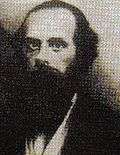 |
Guillermo Tell Villegas (1823–1907) |
Carabobo | 28 June 1868 – 20 February 1869 |
Liberal Party | |||
| 23 |  |
José Ruperto Monagas (1831–1880) |
Monagas | 20 February 1869 – 16 April 1870 |
Military | |||
| 24 |  |
Guillermo Tell Villegas (1823–1907) |
Carabobo | 16 April 1870 – 27 April 1870 |
Liberal Party | |||
| 25 | Antonio Guzmán Blanco (1829–1899) |
Caracas | 27 April 1870 – 27 February 1877 |
Liberal Party | ||||
| 10 (1873–77) | ||||||||
| 26 | 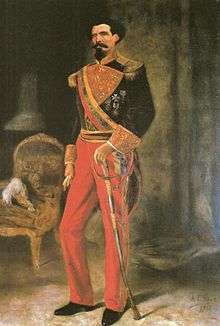 |
Francisco Linares Alcántara (1825–1878) |
Aragua | 27 February 1877 – 30 November 1878 |
11 (1877–82) |
Liberal Party | ||
| 27 | 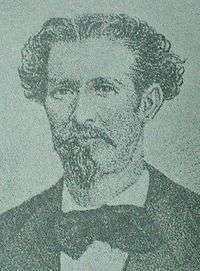 |
José Gregorio Valera | 30 November 1878 – 26 February 1879 |
Liberal Party | ||||
| 28 | Antonio Guzmán Blanco (1829–1899) |
Caracas | 26 February 1879 – 26 April 1884 |
Liberal Party | ||||
| 12 (1882–88) | ||||||||
| 29 | 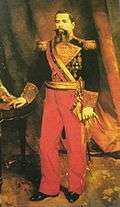 |
Joaquín Crespo (1830–1898) |
Aragua | 26 April 1884 – 15 September 1886 |
Liberal Party | |||
| 30 | Antonio Guzmán Blanco (1829–1899) |
Caracas | 15 September 1886 – 8 August 1887 |
Liberal Party | ||||
| 31 | 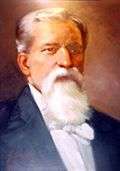 |
Hermógenes López (1830-1898) |
Carabobo | 8 August 1887 – 2 July 1888 |
Independent | |||
| 32 | _by_Cristobal_Rojas.jpg) |
Juan Pablo Rojas Paúl (1826–1905) |
Caracas | 2 July 1888 – 19 March 1890 |
13 (1888–90) |
Liberal Party | ||
| 33 | 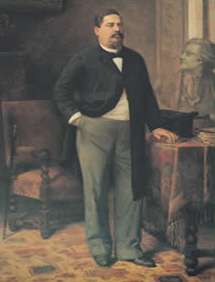 |
Raimundo Andueza Palacio (1846–1900) |
Portuguesa | 19 March 1890 – 17 June 1892 |
14 (1890–94) |
Conservative Party | ||
| 34 |  |
Guillermo Tell Villegas (1823–1907) |
Carabobo | 17 June 1892 – 31 August 1892 |
Liberal Party | |||
| 35 | 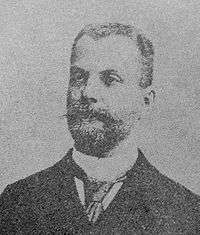 |
Guillermo Tell Villegas Pulido (1854–1949) |
Barinas | 31 August 1892 – 7 October 1892 |
Liberal Party | |||
| 36 |  |
Joaquín Crespo (1841–1898) |
Aragua | 7 October 1892 – February 28 1898 |
Military | |||
| 15 (1894–98) | ||||||||
| 37 | 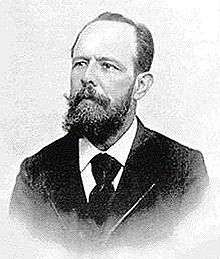 |
Ignacio Andrade (1839–1925) |
Mérida | 28 February 1898 – 20 October 1899 |
16 (1898–08) |
Liberal Party | ||
| 38 | 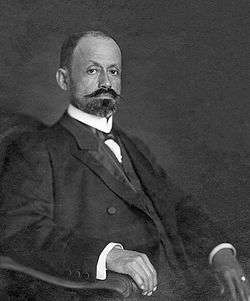 |
Cipriano Castro (1858–1924) |
Táchira | 20 October 1899 – 19 December 1908 |
Military | |||
| 39 | 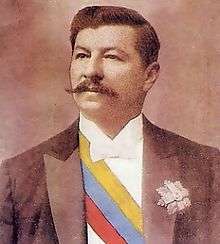 |
Juan Vicente Gómez (1857–1935) |
Táchira | 19 December 1908 – 5 August 1913 |
17 (1908–14) |
Military | ||
| 40 | 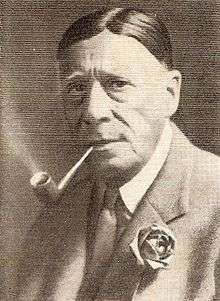 |
José Gil Fortoul (1861–1943) |
Lara | 5 August 1913 – 19 April 1914 |
Independent | |||
| 41 | 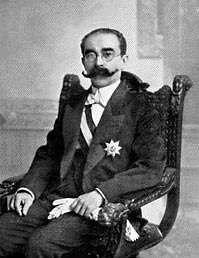 |
Victorino Márquez Bustillos (1858–1922) |
Portuguesa | 19 April 1914 – 24 June 1922 |
18 (1914–22) |
Independent | ||
| 42 | 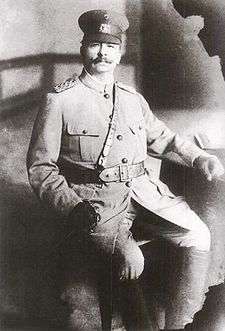 |
Juan Vicente Gómez (1857–1935) |
Táchira | 24 June 1922 – 30 May 1929 |
19 (1922–29) |
Military | ||
| 43 | 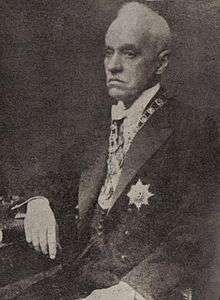 |
Juan Bautista Pérez (1869–1952) |
Caracas | 30 May 1929 – 13 June 1931 |
20 (1929–31) |
Independent | ||
| 44 | 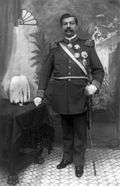 |
Juan Vicente Gómez (1857–1935) |
Táchira | 13 June 1931 – 17 December 1935 |
21 (1931–36) |
Military | ||
| 45 | 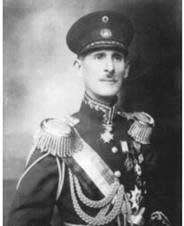 |
Eleazar López Contreras (1883–1973) |
Táchira | 18 December 1935 – 5 May 1941 |
Independent | |||
| 22 (1936–41) | ||||||||
| 46 | Isaías Medina Angarita (1897–1953) |
Táchira | 5 May 1941 – 18 October 1945 |
23 (1941–48) |
Democratic Party | |||
| 47 | Rómulo Betancourt (1908–1981) |
Miranda | 18 October 1945 – 17 February 1948 |
Democratic Action | ||||
| 48 |  |
Rómulo Gallegos (1884–1969) |
Caracas | 17 February 1948 – 24 November 1948 |
24 (1948–52) |
Democratic Action | ||
| 49 |  |
Carlos Delgado Chalbaud (1909–1950) |
Caracas | 24 November 1948 – 30 November 1950 |
Military | |||
| 50 | 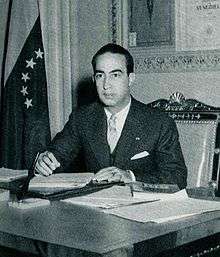 |
Germán Suárez Flamerich (1907–1990) |
Caracas | 30 November 1950 – 2 December 1952 |
Independent | |||
Republic of Venezuela (1953–1999)
Venezuela took the name of Republic of Venezuela (Spanish: República de Venezuela) with the adoption of the 1953 constitution, written by the Constituent Assembly elected in November 1952. The Presidents of Venezuela under this constitution (as well as the 1961 Constitution, which kept the name) were officially styled as President of the Republic of Venezuela.
This period of the history of Venezuela began with the presidency of Marcos Pérez Jiménez, widely perceived to be a dictator.[5][6] After a short period of political instability following Pérez Jiménez's exile in 1958, democracy was restored in the country with the election of Democratic Action leader Rómulo Betancourt as President in 1959. This marked the beginning of the so-called Fourth Republic of Venezuela, which was characterized by the prevalence of the Punto Fijo Pact and the bipartidism of the two main political parties in the country at the time, Democratic Action and Copei.
The second presidency of Carlos Andrés Pérez (1989–93) saw a deep economic crisis, major riots in which hundreds were killed by security forces (the Caracazo, 1989), two coup attempts in 1992, and the 1993 impeachment of Pérez. That same year, Rafael Caldera became the first President of Venezuela not to belong to either Democratic Action or Copei in over forty years, having been elected under the banner of National Convergence. The Fourth Republic officially ended in 2001 when a new constitution entered in force.
| | ||||||||
|---|---|---|---|---|---|---|---|---|
|
Democratic Party Democratic Action Copei National Convergence Fifth Republic Movement | ||||||||
| № [3] |
Portrait | President (Birth–Death) |
State | Term of office | Term [4] |
Party | ||
| 51 | Marcos Pérez Jiménez (1914–2001) |
Táchira | 2 December 1952 – 23 January 1958 |
25 (1952) |
Military | |||
| 52 |  |
Wolfgang Larrazábal (1911–2003) |
Sucre | 23 January 1958 – 14 November 1958[7] |
Independent | |||
| 53 | 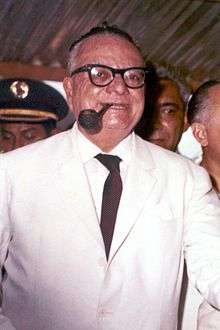 |
Rómulo Betancourt (1908–1981) |
Miranda | 13 February 1959 – 13 March 1964 |
26 (1958) |
Democratic Action | ||
| 54 |  |
Raúl Leoni (1905–1972) |
Bolívar | 13 March 1964 – 11 March 1969 |
27 (1963) |
Democratic Action | ||
| 55 | 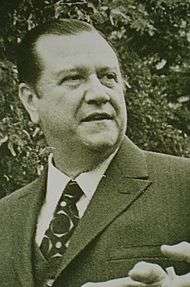 |
Rafael Caldera (1916–2009) |
Yaracuy | 11 March 1969 – 12 March 1974 |
28 (1968) |
Copei | ||
| 56 | 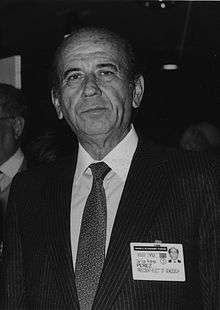 |
Carlos Andrés Pérez (1922–2010) |
Táchira | 12 March 1974 – 12 March 1979 |
29 (1973) |
Democratic Action | ||
| 57 | 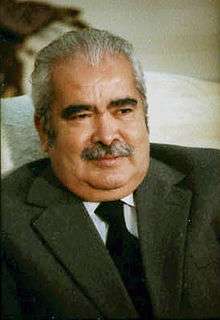 |
Luis Herrera Campins (1925–2007) |
Portuguesa | 12 March 1979 – 2 February 1984 |
30 (1978) |
Copei | ||
| 58 | Jaime Lusinchi (1924–2014) |
Anzoátegui | 2 February 1984 – 2 February 1989 |
31 (1983) |
Democratic Action | |||
| 59 |  |
Carlos Andrés Pérez (1922–2010) |
Táchira | 2 February 1989 – 21 May 1993[8] |
32 (1988) |
Democratic Action | ||
| 60 | 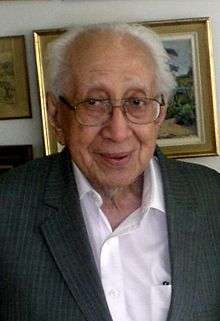 |
Ramón José Velásquez (1916–2014) |
Táchira | 5 June 1993 – 2 February 1994 |
Democratic Action | |||
| 61 |  |
Rafael Caldera (1916–2009) |
Yaracuy | 2 February 1994 – 2 February 1999 |
33 (1993) |
National Convergence | ||
Bolivarian Republic of Venezuela (1999–present)
Venezuela became the Bolivarian Republic of Venezuela (Spanish: República Bolivariana de Venezuela) with the adoption of the 1999 constitution, which renamed the country in honor of Simón Bolívar. The new constitution was promulgated by President Hugo Chávez, who served de jure from 1999 until his death in 2013. The new constitution augmented the presidential term from five years to six years.
Chávez's presidency was interrupted shortly in 2002 following a failed coup d'état attempt that put Pedro Carmona in office for a day. After government-loyal forces ousted Carmona from Miraflores, Vice President Diosdado Cabello assumed executive control for a couple of hours until Chávez could be restored. In 2009, a constitutional referendum approved the elimination of term limits, which allowed Chávez to be re-elected again in 2012. However, the President died in March 2013, only three months into his fourth term, and was succeeded by his Vice President Nicolás Maduro, who was elected the following month to finish Chavez' term.
| | ||||||||
|---|---|---|---|---|---|---|---|---|
| № [3] |
Portrait | President (Birth–Death) |
State | Term of office | Term [4] |
Party | ||
| 64 | .jpg) |
Hugo Chávez (1954–2013) |
Barinas | 2 February 1999 – 5 March 2013 |
34[9] (1998) |
Fifth Republic Movement | ||
| 35 (2006) |
United Socialist Party | |||||||
| 36[10] (2012) | ||||||||
| 65 |  |
Nicolás Maduro (1962–) |
Caracas | 5 March 2013 – Incumbent |
United Socialist Party | |||
See also
Notes
- ↑ (Spanish) "Presidentes de Venezuela". Consulado General de Bucaramanga.
- ↑ Briceño Perozo, Mario. "Mendoza, Cristóbal de" in Diccionario de Historia de Venezuela, Vol. 3. Caracas: Fundación Polar, 1999. ISBN 978-980-6397-37-8.
- 1 2 3 4 For the purposes of numbering, a presidency is defined as an uninterrupted period of time in office served by one person. For example, Carlos Soublette was both the 8th and 10th President because the two periods where he was president were not consecutive. A period during which a vice-president temporarily becomes acting president under the Constitution is not a presidency, because the president remains in office during such a period.
- 1 2 3 4 For the purposes of numbering, a term is a period between two presidential elections. Some terms might be longer than originally expected due to coup d'états or the installation of military dictatorships, thus extending the time between two elections. Venezuela's unique history has allowed several presidents to serve during a single term, as well as some presidents, such as Jose Maria Vargas, serving twice during a single term.
- ↑ Rohter, Larry (22 September 2001). "Marcos Pérez Jiménez, 87, Venezuela Ruler". The New York Times. Retrieved 20 January 2016.
- ↑ Ledezma, Eurídice (21 September 2001). "Obituary: General Marcos Pérez Jiménez". The Guardian. Retrieved 20 January 2016.
- ↑ Larrazábal resigned early to challenge Rómulo Betancourt at the 1958 election, leaving Edgar Sanabria as acting president until the end of his term, on 13 February 1959.
- ↑ Octavio Lepage, then President of Congress, served as acting president from 21 May 1993 and until 5 June 1993, when Ramón José Velásquez was formally selected to succeed Perez as president.
- ↑ Hugo Chávez's first term as president began in February 1999 and is generally considered to last until August 2000, with his second term taking place after he was confirmed during the presidential elections of 2000 as part of the country's constitutional assembly. Therefore, many historians consider the period between August 2000 and January 2007 as Chávez's second term. However, this list considers the period between February 1999 and January 2007 as a single period.
- ↑ Despite being elected and sworn to office in April 2013 after the special presidential elections, Nicolás Maduro's term in office is counted from February 2013, which is when the 36th term was originally set to begin.

